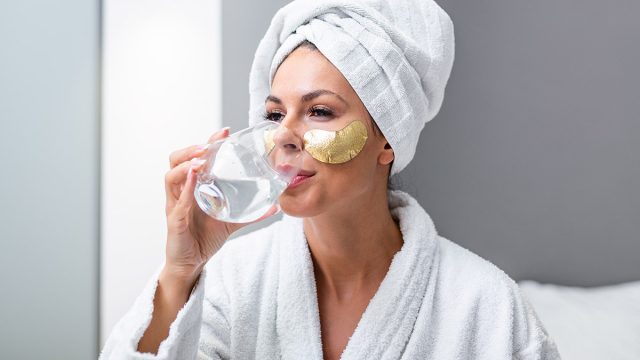
The anti-aging industry is driven by more than just hope and wishful thinking. At this point, there is serious science behind the pursuit of looking and feeling younger. Researchers haven’t stumbled across the fountain of youth, but they say that one or just a few simple habits can nudge the body to turn back the clock. These are 16 anti-aging tips that actually work, according to experts.
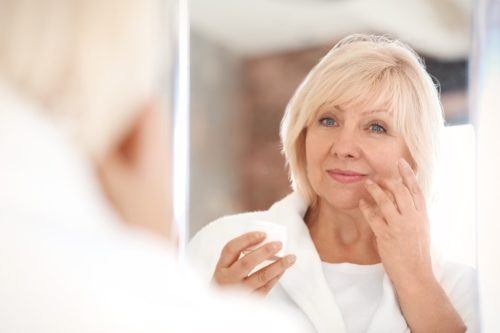
“Using quality skin care products helps keep your skin more youthful,” says Dr. Lonny Green, Medical Director at Rêvée Aesthetics in Richmond, Virginia. “They contain actual active ingredients in quantities you won’t find in the typical drugstore brand. They cost a little more, and you should have a consultation with an aesthetic expert to customize the regimen for your personal needs, and then maintain that relationship to make adjustments as time goes on.”
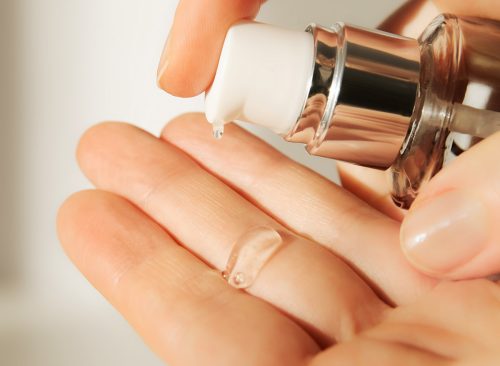
Available in over-the-counter and prescription products, retinol (a derivative of vitamin A) aids in cellular turnover of the skin, helping keep it younger looking. “Retinol is a must-have superpower ingredient that helps your skin stay firm and smooth,” says Green. “It reduces wrinkles and promotes collagen production.”
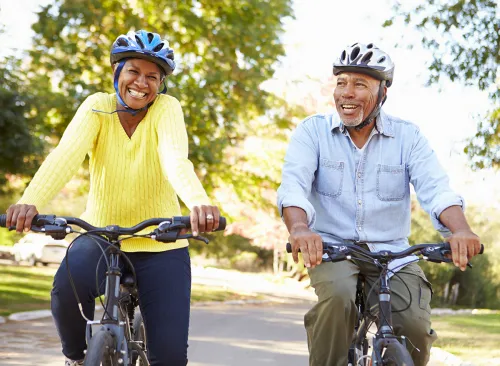
“Regular physical activity boosts blood circulation, bringing nutrients and oxygen to your skin, helping maintain a youthful glow,” says Green. Incorporating strength training alongside cardiovascular exercise is also important on the anti-aging front. Muscle mass and bone density naturally decline with age; doing resistance exercises helps build them up. The CDC recommends 150 minutes of moderate-intensity exercise each week, along with two strength-training sessions.
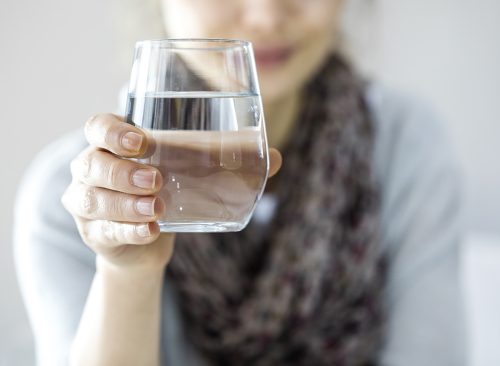
“Water is like a natural fountain of youth for your skin,” says Green. “It keeps your skin hydrated, plump, and glowing.” Keep water at hand and sip throughout the day. According to Harvard Medical School, most adults need four to six cups of plain water daily.
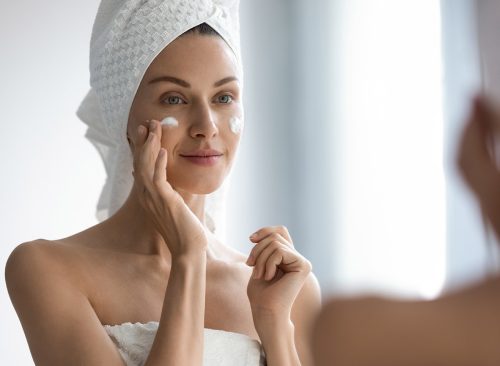
To maintain a youthful look, “it’s crucial to focus on the skin’s fundamental health,” says Rebecca Elston, owner of the skin health clinic Re:Skin. “A strong and resilient barrier is key to maintaining youthful skin.” When shopping for skin care products like a daily moisturizer, “Look for ingredients like ceramides, squalane, peptides, Omega fatty acids, and jojoba oil,” she advises. “These work harmoniously to restore and fortify the skin’s natural defenses, promoting optimal cellular function and hydration.”
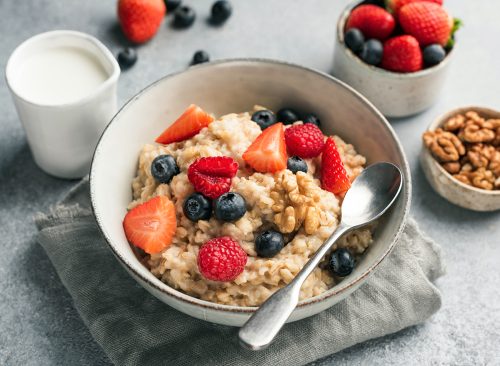
“Antioxidants protect your skin from damage caused by harmful free radicals,” says Green. “Berries, nuts, and leafy greens are full of these age-fighting superheroes.”
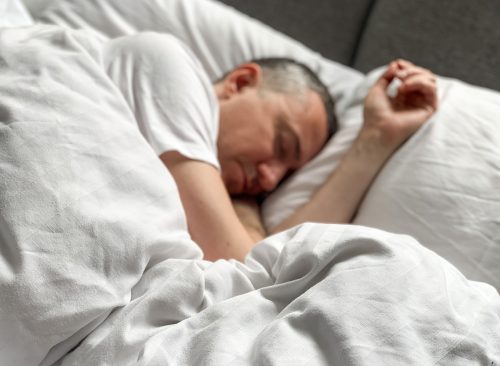
“Adequate sleep is a powerful but often overlooked weapon against aging,” says registered dietitian nutritionist Krutika Nanavati. “While we sleep, our bodies undergo vital repair and rejuvenation processes. Insufficient sleep can result in stress, which can prematurely age the skin.” Experts say most adults need seven to nine hours of quality sleep each night. “Sleep is probably my No. 1 anti-aging tip,” nurse practitioner and skincare expert Nancy Pellegrino told Yahoo Life.
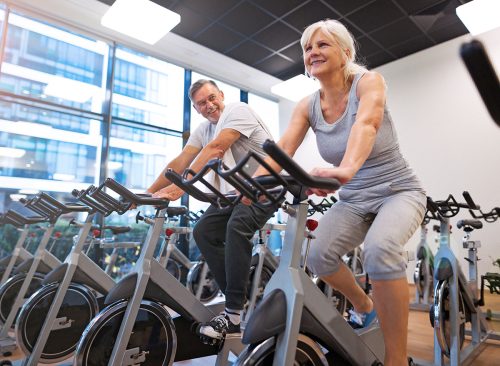
A 2017 study published in the journal Cell Metabolism found that high-intensity interval training (HIIT) can actually reverse the aging of cells and muscles in older people. “Based on everything we know, there’s no substitute for these exercise programs when it comes to delaying the aging process,” said Dr. Sreekumaran Nair, the study’s lead author. “These things we are seeing cannot be done by any medicine. We encourage everyone to exercise regularly, but the take-home message for aging adults that supervised high-intensity training is probably best, because, both metabolically and at the molecular level, it confers the most benefits.”
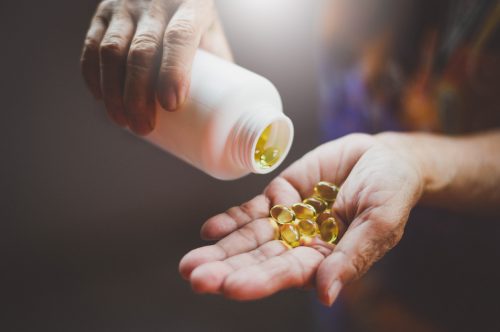
Experts say Vitamin D is important to immunity, may reduce the risk of several types of cancer (which increases with age) and is crucial for bone health. Because vitamin D helps bone absorb calcium, it can stave off osteoporosis, a disease in which bones lose density and become more prone to breakage. According to the National Institutes of Health, adults up to age 69 should consume 600 IU of vitamin D daily between food and supplements, and adults 70 and older should get 800 IU.
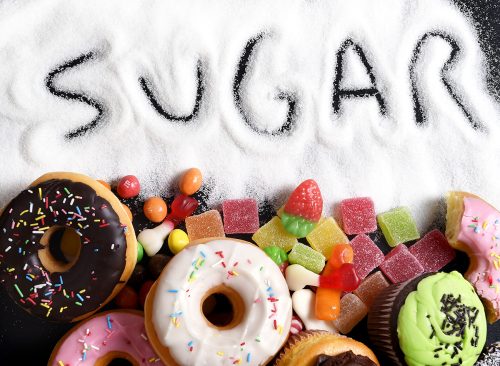
“Findings from research studies suggest that a diet containing lots of sugar or other refined carbohydrates can accelerate aging,” says the American Academy of Dermatology. When consumed in excess, sugar binds to collagen and elastin, two proteins in our skin that keep it looking firm and young. This creates advanced glycation end products (or AGEs), which damage collagen and elastin and actually prevent the body from repairing them. Reducing your consumption of added sugar—most commonly found in sugar-sweetened drinks and processed foods like sweets and refined grains—is a potent anti-aging move.
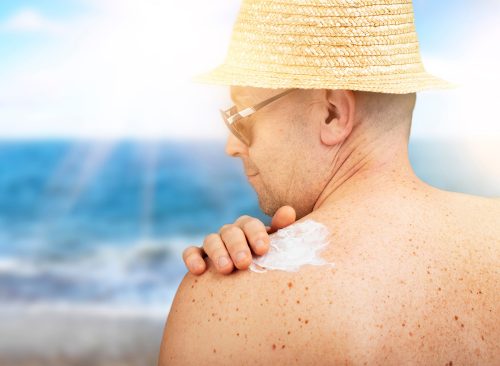
“To prevent premature skin aging, it is crucial to shield your skin from the harmful ultraviolet rays of the sun,” says Nanavati. “Whenever you venture outdoors, even on cloudy days, make it a habit to apply a broad-spectrum sunscreen with a minimum SPF of 30. Remember to reapply every two hours, especially after swimming or sweating.”

Social connectedness is “key to healthy aging,” wrote Dr. Krupa Shah, assistant professor at the University of Rochester School of Medicine & Dentistry in Health and Aging. “Studies have shown that older people who have close connections and relationships not only live longer, but also cope better with health conditions and experience less depression.”
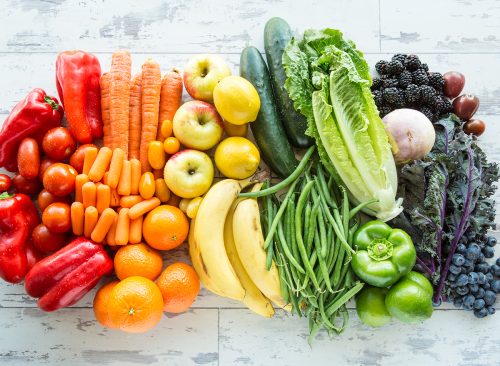
“These vitamins are like magic for your skin,” says Green. “Vitamin C brightens and evens your skin tone, while Vitamin E repairs and protects it.” Eating a variety of colorful fruits and vegetables daily can ensure you’re getting enough of these vitamins in your diet. You can also add facial serums with these vitamins to your skincare routine. “Vitamin C acts as a potent defender against free radicals, while also aiding collagen production and maintaining melanocyte activity to prevent hyperpigmentation,” says Elsdon.

“Many studies have shown that emotional and psychological stress can make you not only look older but can accelerate chronological aging,” says Green. “Practice relaxation techniques like yoga or meditation to keep stress at bay.”
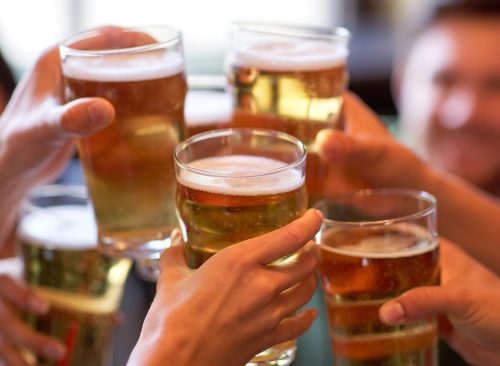
Excess drinking can age you from the inside out, boosting bad cholesterol, impairing your gut health, raising your risk of cancer, and taxing the heart. Studies have also found that heavy drinking can cause the most visible signs of facial aging. In a 2019 multinational study, researchers found that women who drank more than eight drinks weekly had more “upper facial lines, under-eye puffiness, midface volume loss, and blood vessels” than women who drank moderately or abstained. Experts recommend drinking alcohol only in moderation, meaning a maximum of two drinks daily for men and one for women.
RELATED: 90% of People Who Die From COVID Have This in Common
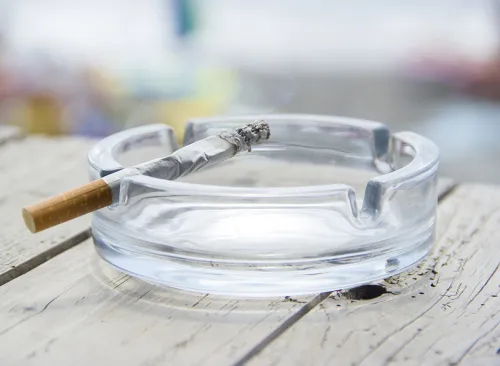
“Smoking accelerates aging, leading to premature wrinkles and dull skin,” says Steve Theunissen, a certified nutritionist and ISSA/IFPA certified personal trainer. “If you smoke, quitting can be one of the most significant anti-aging steps you take.”














